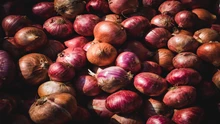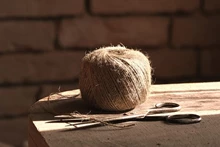
Weeds will grow even in the finest of plots. After all, why wouldn't they? You've created a welcoming environment, and the sun shines down on even the most hated plant. There are plenty of chemical solutions for clearing the decks if you're fighting those unwanted visitors(weeds), but many people are increasingly looking for alternatives to commercial herbicides as we enjoy a long-overdue move toward a "greener" lifestyle.
One of the most challenging aspects of having farmland is keeping the weeds at bay. On the market, several herbicides promise to deliver outstanding results. Many farmers and growers, on the other hand, choose not to use weed treatments that include a long list of unknown chemicals.
If you'd rather not use commercially manufactured herbicides to control weeds, here are a few natural alternatives, along with some weed-fighting tips.
Hand pulling
Pulling weeds by hand is time-consuming and exhausting, but it is the most effective and cost-efficient method of weed management. It also provides an excuse to spend a lot of time outside while getting some free exercise. After just a few hours of weeding, you'll uncover muscles you didn't know you possessed.
Pull each weed out by the roots while removing weeds by hand. If seeds are present, discard the weeds somewhere other than your compost pile, where they will most likely sprout again unless the pile becomes hotter than 140 degrees Fahrenheit.
Boiling water
Another affordable and simple technique to combat weeds is to use boiling water to destroy them. boil water and then pour it over the weeds. Heat, which may also be used via a flame-weeder, is your buddy here, "Heat kills weeds by destroying their protective outer coats and enlarging internal cells, causing them to burst and die, whether it's delivered by boiling water or a living flame." This implies that only a light touch is required.
Mulching
Mulching is an excellent strategy to keep weeds at bay around the plants. Spread the straw or pine shavings, feathers, and chicken dung over your garden when you clean out your coop in the fall. It will have decomposed sufficiently by spring for you to incorporate it into the soil. Mulch can also be made from dried leaves and pine needles.
White Vinegar
White vinegar can be used to destroy weeds. Fill a bottle with some and spray away. It kills plants by removing the protective coating on their leaves.
Your weeds will shrivel up if you use regular household vinegar (5 percent acetic acid). You'll get a lot more bangs for the buck if you buy commercial-grade vinegar (20 to 30% acetic acid).
Lemon Juice
Lemon juice contains citric acid, which is a powerful weed killer. There are also commercial orange oil weed killers on the market, but basic lemon juice will do. Plant leaves are burned and die as a result of the acid. Combine lemon juice with concentrated vinegar in a 1:16 ratio for an extremely powerful weed killer.









